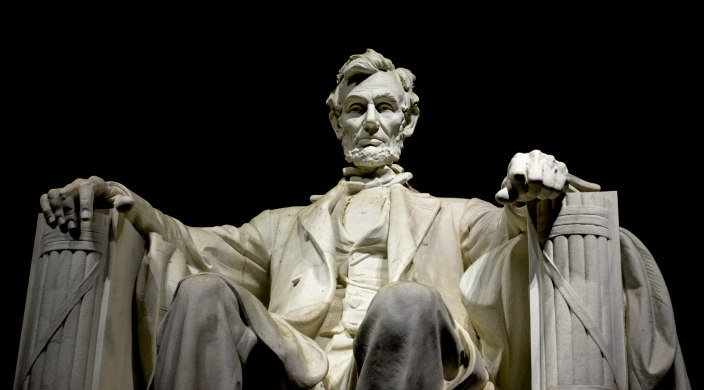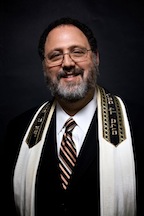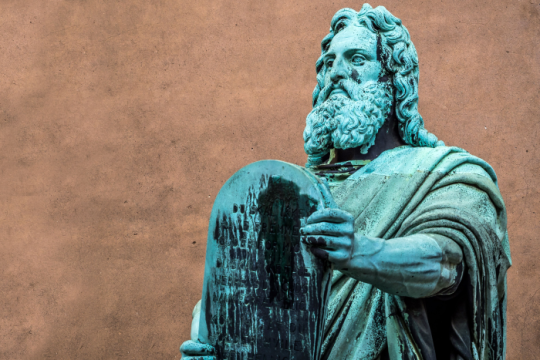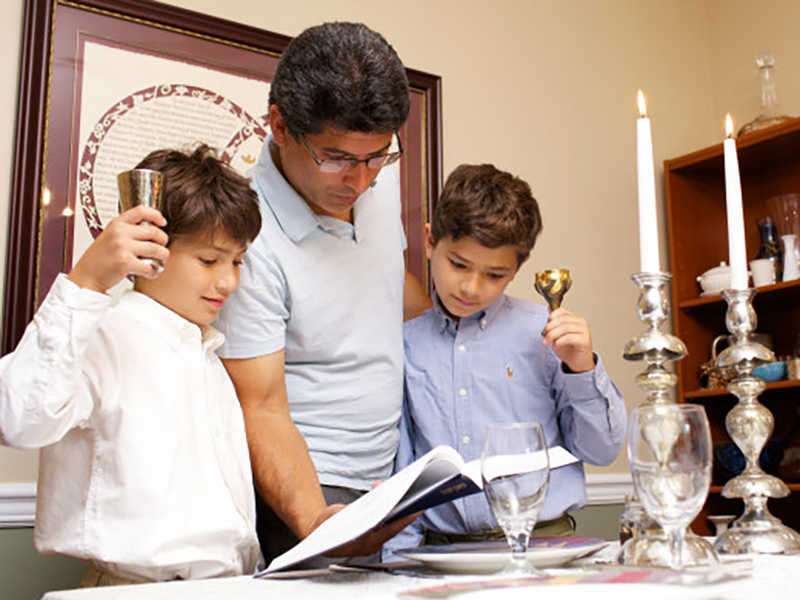
In many ways, Abraham Lincoln (1809-1865), the 16th president of the United States, remains one of the most “biblical” figures in American history. Despite contemporaneous suspicions of his being an agnostic, much of what he wrote was infused with scriptural quotations favoring the Hebrew Bible to the New Testament by a four to one margin. Moreover, he came to understand the Civil War and the destruction of slavery in biblical terms and later, saw a biblical mandate in “binding up the wounds of the nation.” Unlike New England Puritans during the Colonial era who loved Hebrew but disdained Hebrews, Lincoln only read the Bible in English and viewed the Jews of his time in high esteem. While Civil War era Jews largely supported Lincoln along regional and party lines, he later achieved legendary status among American Jews and others who later more broadly revered the martyred president for saving the Union and for his biblically informed writings and worldview.
Although American Jews widely admired both George Washington and Thomas Jefferson, Lincoln was the first president to have extensive social contact with Jews in the United States. Abraham Jonas of Springfield, Illinois, whose sons fought on both sides during the Civil War, was himself an active Republican who helped place Lincoln in nomination in 1860. Samuel G. Alschuler, a Bavarian Jewish immigrant and photographer, took numerous photographic portraits of Lincoln from his days as a young, rising politician to the president’s funeral procession as it worked its way through Chicago en route to his final resting place in Springfield. As president, Lincoln was regularly attended to by a Jewish foot doctor, Issachar Zacharie, who was a favorite of the whole Lincoln family and served as a trusted emissary and diplomat for the president. Recent scholarship has demonstrated that Lincoln occasionally sought out plays with Jewish themes, an unusual cultural interest at the time.
During the war, Lincoln continued to encounter American Jews. By 1860, there were approximately 150,000 Jews in the United States who congregated in 200 synagogues, the majority of which were in pro-Union states. Of the 10,000 Jews estimated to have served during the war, 7,000 fought for the North including multiple generals and Congressional Medal of Honor winners. Lincoln was personally involved in two wartime Jewish issues. He personally commissioned the first Jewish Army chaplain, overriding Congressional legislation that provided only for the appointment of “ministers of the Gospel.” In addition, Lincoln personally intervened in the matter of Ulysses S. Grant’s infamous 1862 General Order 11 which expelled all Jewish civilians from the Army’s Department of Tennessee. Lincoln’s actions affirmed the full enfranchisement of American Jews as citizens of the United States and prevented the erosion of Jewish civil rights in the Union. By contrast, his political enemies subjected Grant to years of charges of personal anti-Semitism.
It is possible that the familiar opening words of the Gettysburg Address, “Four score and seven years ago,” were influenced by a sermon offered by Sabato Morais, hazzan (cantor) of Congregation Mikveh Israel in Philadelphia, Pennsylvania, on July 4, 1863, and later communicated to Lincoln by members of Philadelphia’s Union League. For sure, the actual text of the Emancipation Proclamation was disseminated by a Jewish telegraph operator, Edward Rosewater, after Lincoln gave his historic talk. On March 4, 1865, Lincoln gave his second inaugural address, a deeply moving speech filled with biblical quotes and metaphors, which Lincoln himself viewed as his finest work. According to a report offered by Mary Lincoln a year later, the president shared with her a desire for them to visit Jerusalem shortly before his assassination. Lincoln’s death, which occurred during Passover, evoked a tremendous response from the American Jewish community and even sparked a controversy that Lincoln himself was of Jewish ancestry, an unproven assertion. In a larger sense, Lincoln had become “Father Abraham” of the entire American nation, Jews and gentiles alike.




